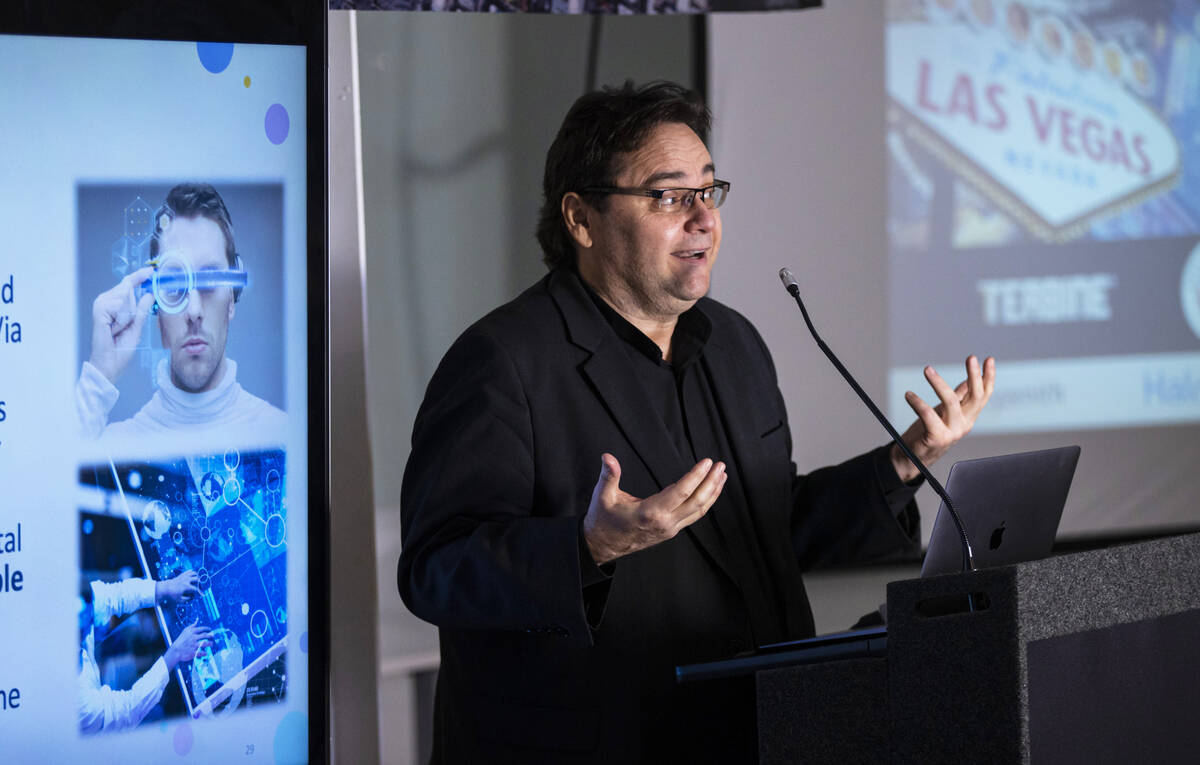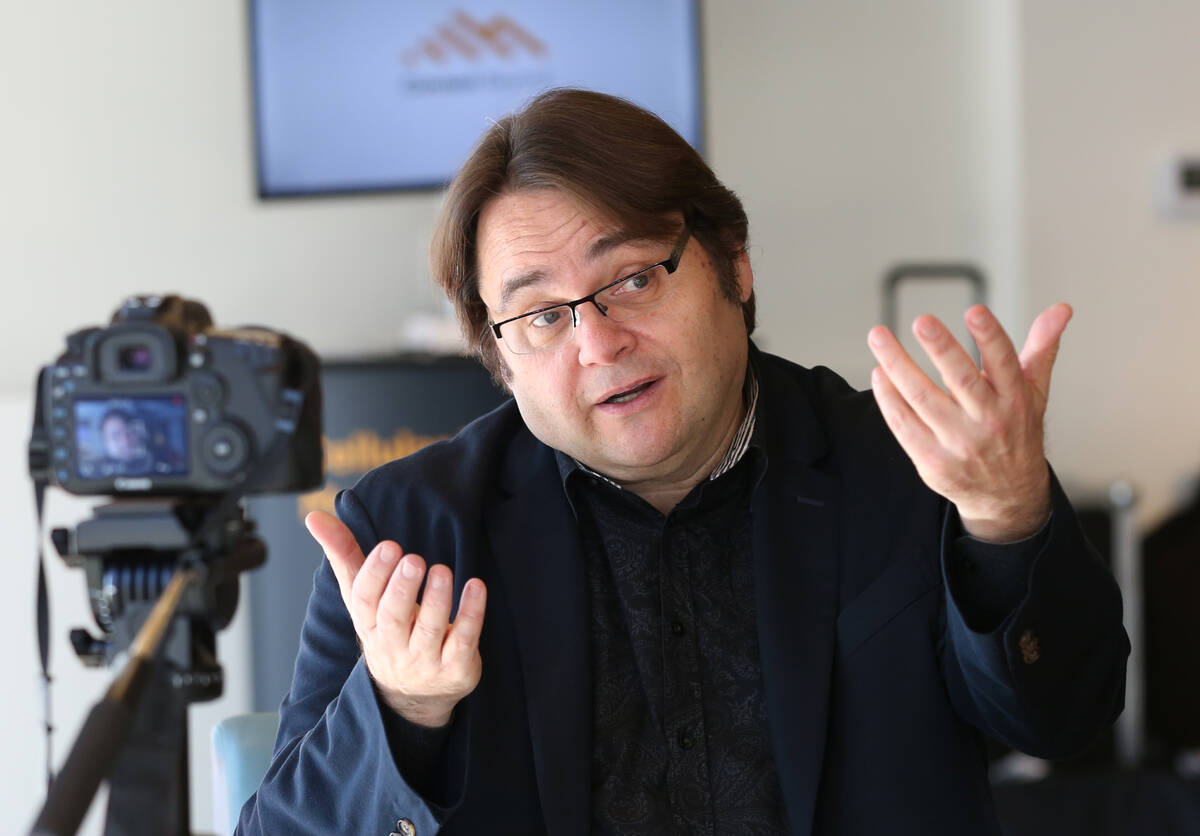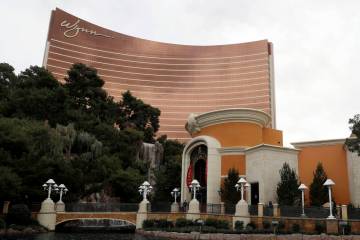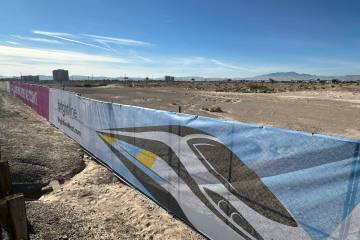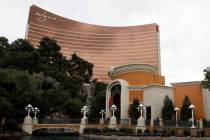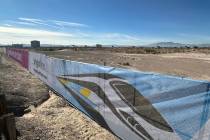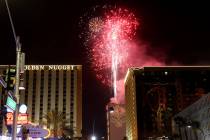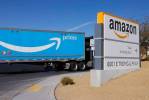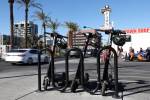Thousands of California businesses have fled Golden State for Las Vegas
Online retailer TheDrop.com launched in San Francisco in 2017, but CEO Matt Falcinelli knew all along that when it was time to establish the streetwear company’s headquarters it couldn’t be in California.
Costs were just too high to operate a business.
The company’s initial revenue model was based on a percentage per transaction, and Falcinelli said it felt priced out of the Bay Area.
“I did my own analysis — everything from income tax and state tax, worker tax, payroll tax, cost of salaries, cost of living — it almost came out to 50 percent less expensive to operate in Nevada (than) California,” he said.
So in 2018, the company relocated to Las Vegas. At the time, it had two employees and now, most of its staff of 13 will be based in Las Vegas by the end of the year.
TheDrop.com is just one of thousands of California businesses that have opted to move to Nevada, and Las Vegas has been the most popular destination.
A recent study by Claremont McKenna College’s Rose Institute and Kosmont Companies found that California has been a net exporter of businesses for at least three decades with a large portion of firms ending up in Nevada, Arizona, Texas and Oregon.
Nevada’s proximity to California is an opportunity for economic diversity and growth, Las Vegas Global Economic Alliance CEO Tina Quigley said.
“The fact that California has become a very arduous place for businesses to do business is the primary reason we’re seeing the diversity of growth in industries unlike we’ve seen before,” Quigley said. “There’s no such thing as a stagnant economy. You’re either prosperous or you’re dwindling. To do that, we have to continue to grow the businesses we’ve got here. We need to attract new businesses who are starting, and we need to get those who are looking to get new locations or relocate to consider our destination as well.”
The 2022 Kosmont-Rose Institute Cost of Doing Business Survey reported Las Vegas as the No. 1 destination for California businesses that relocated in the last 30 years. It found 2,832 companies moved to Las Vegas between 1990 and 2019 — almost double the second-highest destination of New York City, which saw 1,455 transplants — and 5,619 companies to Nevada, when looking at the top 50 destinations.
The study analyzed 158 western U.S. cities through seven variables: sales tax, utility tax, business license fees, average office rent, FBI crime index, median home value and minimum wage.
It also created a composite rank based on each city’s average score across the seven categories. The study reported that 18 of the top 21 highest-cost cities were in California. While Las Vegas was the most popular destination in Nevada, other Silver State commmunities were considered among the most cost-friendly for businesses. North Las Vegas, Gardenerville, Henderson and Carson City all received low composite ranks.
Choosing Vegas
Business hurdles are part of what prompted Lindsay Ballengee and Marta Spegman, co-founders of cannabis-safe smart locker company SafeArbor, to relocate their headquarters from Northern California to Southern Nevada. The pair started their company in 2018 and began developing the hardware with a partner based in North Las Vegas.
They soon saw the appeal of working in the Las Vegas Valley.
“We figured, why are we wasting our time in a state where it has a lot of hurdles or some boundaries to be able to get to a place in which you could have a market reach or footprint that’s significant?” said Ballengee, SafeArbor’s chief operating officer and longtime Southern California resident.
David Knight remembers “when the Kool-Aid wore off” while operating his tech startup, Terbine, in San Francisco in 2018.
He was prompted to move its headquarters after he learned a handful of his programmers were sharing a one-bedroom apartment, with one sleeping on an air mattress in the living room, even though they were earning a competitive salary for the Bay Area.
Knight said he surprised colleagues with the choice to relocate to downtown Las Vegas — most assumed they would go to the growing tech hub of Austin, Texas — but evangelizers like the late Tony Hsieh convinced him to set up shop in downtown.
He loves the access to California, the convenience of having Harry Reid International Airport for clients, who are also often in town for conventions, and even to top policymakers.
“I’ve met both governors — never happened in California,” he said.
‘Gonna go spearfishing’
The recent transplants also mentioned the entrepreneurial attitude as an alluring change.
Ballengee and Spegman said StartUpNV, a nonprofit business incubator and accelerator, gave constructive criticism and made connections when they moved to Las Vegas during the 2020 pandemic shutdowns. The next year, SafeArbor received a $200,000 investment through the nonprofit’s “Shark Tank”-style pitch event, AngelNV.
“It felt as though people weren’t as stuck in their ways,” Ballengee said. “There was a mindset that was open to newness and to innovation that we hadn’t yet seen before. It was a real opportunity and caught me a bit by surprise.”
Meanwhile, Knight saw the spark at Tech Alley, a monthly networking and education event held in downtown Las Vegas.
“I haven’t felt a vibe like that in years when I was in the Bay Area. That’s just so long gone,” Knight said. “Now, it’s all formal, ‘What’s your ROI?’ and stuff like that. What I’m seeing here is a lot more fun.”
Falcinelli of TheDrop.com said the company is planning to expand into logistics and manufacturing services.
“We want Las Vegas to be one of the fashion capitals in the world, more so in the streetwear, youth fashion market,” Falcinelli said. “As we established our larger footprint in Las Vegas, not just technology, but logistics and manufacturing services, we want to incubate brands.”
The LVGEA is beginning to capitalize on the momentum as well. The public-private partnership is tasked with attracting new businesses to the state and helping existing firms expand, primarily through tax incentive applications. Historically, the public-private partnership let businesses come to them, Quigley said, but with the migration of California companies it has spurred a new strategy.
“Instead of casting a wide net, we’re gonna go spearfishing,” she said. “There’s more work involved in that, but we want to be very intentional moving forward on the companies that we’re trying to attract.”
Not without challenges
But Quigley said the LVGEA is mindful about not pursuing companies with high water consumption needs or those who would require more land than what is available, given that both are in limited supply.
That leaves the LVGEA and its partner agency, the Governor’s Office of Economic Development, focused on luring new corporate headquarters, lithium battery manufacturing, sports and entertainment companies and supply chain-related jobs to the region.
Economic leaders also face difficulties in recruiting white-collar firms, said Stephen Miller, director of research at UNLV’s Center for Business and Economic Research.
“The skill set that our labor force offers doesn’t always match the needs of firms coming in,” he said. “And on top of that, major firms coming in with the president or the CEO or the CFO, they’re concerned about their kids and what the education system is like in Las Vegas.”
Quigley said she pushes back on that notion and encourages executives to look at schools individually, considering the size of the Clark County School District.
Other entrepreneurs are trying to encourage C-suite managers to look at Las Vegas beyond the Strip.
Teddy Liaw, founder of NexRep and a Californian-turned-Nevadan who was formerly on Gov. Gavin Newsom’s Entrepreneurship Task Force, created a multiday event in September for 50 invited guests comprised of CEOs, company founders and captains of the industry to highlight what the Las Vegas Valley has to offer.
The Vegas Tech Summit showed guests such as Kevin Lin, co-founder of Twitch; Stanley Tang, co-founder of DoorDash; David Yeom, CEO of Evite; and eight-time Olympic speed skating medalist Apollo Ohno the region’s economic benefits.
“Most people are coming to Vegas for CES — it’s a three-day stop. They don’t leave any of the casinos or hotels and so they only think of it as that,” Liaw said in an interview with the Review-Journal last week. “We broke that first barrier, which was a belief that they can move themselves, their families, their children, now their executives and companies and that was different.”
This story has been updated to clarify the number of companies moving to Las Vegas and Nevada.
McKenna Ross is a corps member with Report for America, a national service program that places journalists into local newsrooms. Contact her at mross@reviewjournal.com. Follow @mckenna_ross_ on Twitter.
Californians have a long history of moving to Las Vegas, dating back to the turn of the 20th century.
When railroad businessman and U.S. Senator William Andrews Clark began selling land in Nevada in the spring of 1905, a two-day auction brought "a crowd of 2,000, mostly from Los Angeles," to buy 176 plots for about $80,000, according to author Geoff Schumacher in "Sun, Sin & Suburbia: The History of Modern Las Vegas."
Nowadays, Californians are hitching moving trucks instead of wagons into town.
A U-Haul study said Henderson was among the top 20 cities on its growth index, which analyzed customer moves during 2022. Meanwhile, Redfin found Las Vegas was the second-highest metro area that homebuyers were moving to — the top out-of-state origin being Los Angeles.
"We still see an influx of people leaving California and coming into Henderson," Travis Cochran-Kilman, U-Haul Company of Las Vegas East president, said in a news release. "It's close enough to California that people can go back to visit family. Henderson also has new houses being built everywhere. We don't have the supply issues here that plague a lot of other areas around the U.S."
Statistics from the Department of Motor Vehicles show that Californians make up a large portion of new residents. In 2021, California driver's licenses and ID card surrenders was at 43.6 percent while last year it was 41.9 percent of surrenders.



